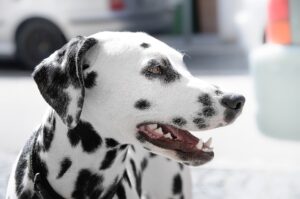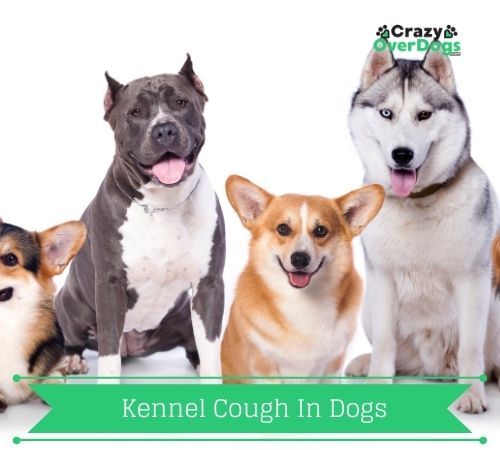What causes kennel cough in dogs? This health issue is sometimes referred to as a canine viral respiratory disease, which is a chronic upper respiratory infection. It occurs when the mucus secreted by the nose and throat of a dog is contaminated with a virus.
It can also be caused by various factors such as exposure to the bacteria Bordetella bronchiseptica. This is one of the most common culprits for a dog developing this health problem.
The content takes around 4 minutes to read, but if you are in a hurry, we have also included a table of contents below so you can see at a glance what the content is.
Make sure to check out today’s deals to SAVE money on dog products by clicking on the graphic below. Don’t miss out.
This post contains affiliate links and I will be compensated if you make a purchase after clicking on my links.
——————————–
Table Of Contents
Symptoms Of Kennel Cough In Dogs:

When a dog is coughing, it will usually experience a sore throat, plus excessive salivation, mucus in the mouth, and difficulty breathing. The cough is a dry hacking cough.
These symptoms may appear suddenly and without any prior warning. However, they can get worse over time and last for many days.
To help reduce your dog’s risk of developing kennel cough, you should always try to avoid the factors listed above. This is because of the contagious nature of the disease. Therefore make sure that you keep your pet away from other animals if you think it has this condition. In addition, speak to your vet.
It’s very easy for dogs to contract this disease because their immune systems are not as strong as ours. This means that you should always make sure that your pet gets the proper vaccines and boosters so that they are protected against it.
Other Contributing Factors:
- Cold temperatures.
- Badly ventilated or crowded conditions are found in many kennels.
- Exposure to dust.
It is very contagious among dogs and is usually not even noticed until it has progressed to the stage of pneumonia. Then it can then become very serious. Fortunately, there are various treatments available that can help.
————————-
Treating Kennel Cough In Dogs:
In most cases, kennel cough in dogs will settle without treatment being required. However, a week or two of rest, or medications such as antibiotics and cough medications can help to reduce the symptoms and aid recovery. You could also consider vitamins and supplements.
To help your dog feel more comfortable you can place a humidifier next to his bed. By introducing moisture into the air, will help to soothe the dry cough.
The period of recovery for most infected dogs can be resolved within one to three weeks; longer for older dogs. If you find that your dog is not improving within the expected time period, contact your vet.
This is important because the longer the kennel cough infection keeps going, there is the possibility that it can lead to pneumonia. This is particularly for puppies, those with existing health issues, or older dogs.
Moreover, if there are additional symptoms such as not eating, or breathing is rapid. These might be an indicator of more serious problems.
Vaccine Treatment For Kennel Cough:
Kennel cough can also be helped with vaccine treatment which comes in three types.
- A nasal mist
- An injection.
- Oral vaccine.
The oral and nasal vaccines are normally dispensed annually. However, your vet could recommend every six months for those dogs in a high-risk category.
If you are considering placing your dog in kennels at some time in the future, most will require evidence that your pet has been given the kennel cough vaccine, before being allowed to stay This is to prevent the infection from spreading throughout the kennels.
Common FAQs:
——————————
Estimated reading time: 4 minutes
—————————-
Disclaimer: All material on this website is provided for your information only. It may not be construed as medical advice. No action or inaction should be taken based solely on the contents of this information. Instead, readers should consult appropriate health professionals or veterinarians on any matter relating to their pet’s health and well-being. The publisher is not responsible for errors or omissions.


